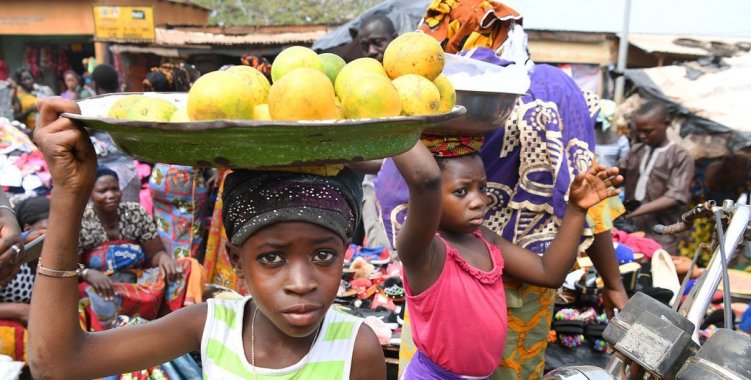In its analysis of the 2024 State Budget (OGE) allocated to child protection, released this Thursday, the UN agency in Angola considers the reduction in the budget allocation for Angola's National Action Plan for the Eradication of Child Labour (PANETI) to be "worrying".
According to UNICEF, the aforementioned plan saw a 40 percent reduction in its budget, from three billion kwanzas in 2023 to less than two billion kwanzas in 2024.
This reduction "is worrying not only because of the amount, but also because of the importance of the plan and the inspection and monitoring activities at national level", UNICEF stressed, highlighting that the practice of child labour continues to be the target of complaints, especially in the provinces of Bié, Luanda and Zaire.
The impact of child labour on children and young people "is to maintain the cycle of poverty and prevent children from having access to education and learning opportunities, and it can also harm their health and expose them to physical, sexual and emotional violence", it says.
For the United Nations agency, it is essential to maintain the levels of investment in PANETI 2021-2025, noting that a national child protection system is defined by actions to prevent and respond to exploitation, abuse, neglect and harmful practices and violence against children.
Between January and May, the Angolan National Children's Institute (INAC) recorded 2484 cases of exploitation of minors for child labour, mainly in agriculture, street vending and diamond mining.
Speaking to the Lusa news agency in June, the director of INAC, Paulo Kalesi, said that child labour in Angola occurs mainly in the informal sector of the economy, as well as on farms, warehouses, public roads – such as street vending – and fishing.
The 2024 State Budget allocates around 19.1 billion kwanzas to the central bodies that have defined actions and programmes dedicated to child protection, with INAC, the body responsible for implementing the executive's policies in relation to children, registering an increase in its allocation of 2.9 billion kwanzas.
According to UNICEF's analysis, the allocation for child protection in 2024 represents 0.18 percent of the State Budget, resulting from all direct and indirect actions for this purpose, and the agency therefore recommends gradually increasing the amount to at least 1 percent.
In this session, the UN agency also presented analyses on the 2024 State Budget in the sectors of social protection, water and basic sanitation, inclusion and disability, gender, education, health and nutrition.







